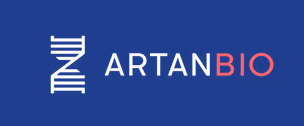TL;DR
- Science IP Tokens (Science IPTs) are evolving from Molecule's original pipeline, proof-of-invention → Science IP-NFT → Science IPT, to be more open and composable
- Molecule v2 evolves Science IPTs from governance tokens into assets that can lead to RWAs with IP equity rights through compliant legal structures
- Science IPTs have spread from Molecule to Bio Protocol and pump.science, creating new approaches to tokenization for new scientific use cases with distinct commercialization paths
- The Science IPT ecosystem is becoming open-source, soon enabling any launchpad to adopt Science IPT standards
Building for composability
Molecule’s original Science IP Token framework introduced a new primitive for science – a governance token linked directly to scientific IP. The original three-step process – researchers submitted proof of invention, minted IP-NFTs for onchain ownership, then minted Science IPTs for governance – showed that real-world science IP could be tokenized, governed, and coordinated onchain.
The forthcoming Molecule v2 framework represents the evolution of Science IPTs by creating a pathway for token holders to gain equity ownership of the underlying science in a legally compliant framework. Science IPTs will fulfill their promise as Science RWAs, enabling onchain governance and legal IP ownership of scientific discoveries.
The Molecule v2 protocol will enable researchers to commercialize onchain science along traditional biotech paths – pharmaceutical acquisitions and licensing deals, like Prima Donna's enamel regeneration technology building toward FDA approval.
And while Science IPTs prepare to get more flexible and more powerful, they’re also becoming more widely available, as Bio Protocol and pump.science now offer new ways to leverage Science IPTs on their platforms.
Bio & pump.science have entered the Science IPT chat
Good ideas spread. Life on Earth started in the ocean and spread to land. Science IPTs started trading on Molecule – and have now migrated to Bio Protocol and pump.science.
These platforms are contributing new ideas to the Science IPT framework for new use cases. DeSci is evolving. Science IPTs are evolving too.
Bio has introduced AI BioAgents that develop and explore new scientific hypotheses, and use Science IPTs as funding vehicles to funnel value back to the BioAgents, Bio DAOs, and specific research labs. Bio's AI-generated IPTs focus on novel IP discovery, identifying therapeutic targets humans might miss, positioning them for early-stage pharma partnerships.
Aubrai, the BioAgent based on the life’s work of famed longevity researcher Aubrey de Grey, launched in August 2025 and has already generated over 1,100 hypotheses, each a new opportunity to mint a Science IPT.
BIOMEAI, the MicrobiomeDAO BioAgent, launched last week. Many more BioAgent launches are on the way. More BioAgents mean more hypotheses and more Science IPTs.
Beyond BioAgents, Bio is launching other Science IPT use cases, like $eDMT, a Science IPT from PsyDAO to fund research into therapeutic uses for DMT.
pump.science takes another approach – Science IPTs represent compounds launched on the platform, with trading fees funding research using worms, flies, mice, and soon humans. To date, pump.sciencee has launched markets to explore 73 compounds – each tokenized as a Science IPT.
While compound submission is currently whitelisted, the platform will soon transition to a fully open and permissionless marketplace for scientific research, enabling more compounds, experiments, and Science IPTs.
Bio and pump.science are also innovating new pathways for research on direct-to-consumer products, spanning pain and inflammation, nootropics, and more. Percepta Sport, a nootropic developed by CerebrumDAO, is already available from Molecule’s DeSci store, on Amazon, and in stores like Walmart.
Science is infinitely creative, experimental, flexible, and transformative – Science IPTs are too.
Towards a DeSci Cambrian Explosion
Molecule created the original Science IPT framework to bring scientific research and funding onchain – and it worked. Molecule v2 advances that mission by introducing a compliant pathway to offer equity in the underlying IP.
Now, the Science IPT framework has spread to Bio Protocol, pump.science, and beyond. The framework’s more open and composable next iteration will lead to more use cases, hypotheses, experimental protocols, and pathways to commercialization.
Soon, a Cambrian explosion of onchain scientific ideas, tokenized as Science IPTs, will unlock the most productive era of scientific discovery in human history.
Bio/acc.

































